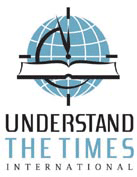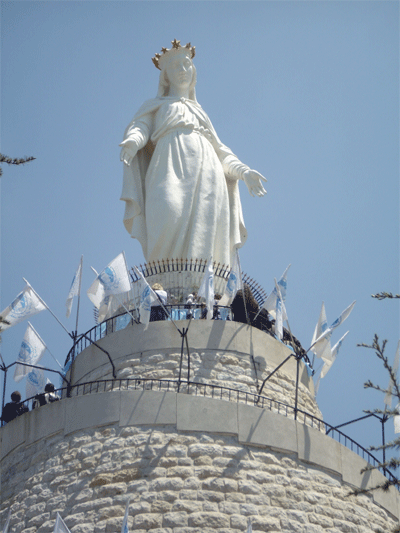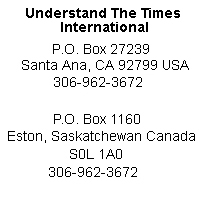|
We are at the height of the 23rd International Mariological Congress, organized by the Pontifical Mariana Internationalis Academy, under way since Tuesday at the Pontifical Antonianum University of Rome.Opened by Cardinal Angelo Amato, prefect of the Congregation for Saints' Causes and president of the congress, the meeting will continue Saturday with a papal audience at Castel Gandolfo. It concludes Sunday with the celebration of the Eucharist presided over by Cardinal Gianfranco Ravasi, president of the Pontifical Council for Culture.
ZENIT spoke with one participant, Father Maroun Chidiac of the Maronite Marianate Order, secretary of the Middle Eastern Mariological Society in Lebanon, who in this interview describes for us the devotion to the Virgin in his country and the great anticipation of the Pope’s visit next week. ZENIT: In his Pontificate, Benedict XVI has often concentrated on the figure of Mary, indicating her as an example of life and exhorting the faithful to turn to her in prayer. Hence, next week’s visit of the Pope might be an impetus for the realization of this Mariological ministry of which you speak? Father Chidiac: Yes, absolutely! And not only an impetus but also a confirmation. The people already live profoundly this faith in Our Lady. Very widespread, for example, is the practice of the rosary, hence the Holy Father will see confirmed this dedication to the Virgin. Above all the Pope’s presence will give hope to the Lebanese people to overcome their profound concern for all that is happening in the Middle East and to go beyond. The Pope often speaks of hope, and to speak of hope makes us think immediately of Mary, the true sign of hope for the whole of humanity, for Lebanon and for all Christians and non-Christians of the Middle East. ZENIT: In regard to all the difficult situations, at times also tragic, which the Middle Eastern countries are experiencing, can it be affirmed that devotion to Our Lady can also favor ecumenical dialogue? Father Chidiac: Certainly, it’s a great help. There are so many different traditions, but also so many points of convergence. Suffice it to think of the dogma of the Mother of God, foundation of both the Catholic and Orthodox faith, which is already a very important reference for ecumenical dialogue.I hope that in the future this dialogue can be deepened also from the theological and relational point of view, both at the theoretical as well as the practical level. In the sense of thinking of the mystery of God with the light of the “school” of Mary and living the theological virtues as she did: with openness to the other, simplicity, hospitality, and also love for those who are far away or totally different from us. ZENIT: And in regard to the Middle Eastern Mariological Society, of which you are secretary, what activities are you involved in at present and, above all, how are you preparing to receive the Pope? Father Chidiac: After two Mariological Congresses organized three years ago, we wanted an extended pause to reorganize the work of the future and to concentrate on a specific objective: to spread Mariology, that is, knowledge of the Virgin and genuine devotion to her in every country of the Middle East. In regard to the Pontiff’s trip, we have not done so much from a practical point of view, but we have “worked” a lot on the activity that is most engaged in Lebanon: prayer. This has been our intuition and inspiration: to prepare for the Pope’s visit by praying. ZENIT: What does it mean for the Lebanese people that the Pope is coming to visit them personally? Father Chidiac: It’s something very important. The words of Christ to Peter come to my mind: “When you return, confirm your brothers.” An area that never expresses calmness is, in fact, in need of this visit to receive confidence, to strengthen the faith -- in view also of the Year of Faith -- to look at the future with greater positivity and light.Above all, the Lebanese are in need of feeling “at home.” There are so many religious confessions in our country, which is one of the main causes of the war, and when this danger is recognized, the population feels disoriented, as if it’s not in the right place. Hence, the Holy Father’s presence will remind us that we are all at home, children of the same family and the same Mother, Mary.
|
|
|
An International Missionary Outreach Dedicated to Evangelizing the Lost By Sharing The Gospel According to the Scriptures
|












